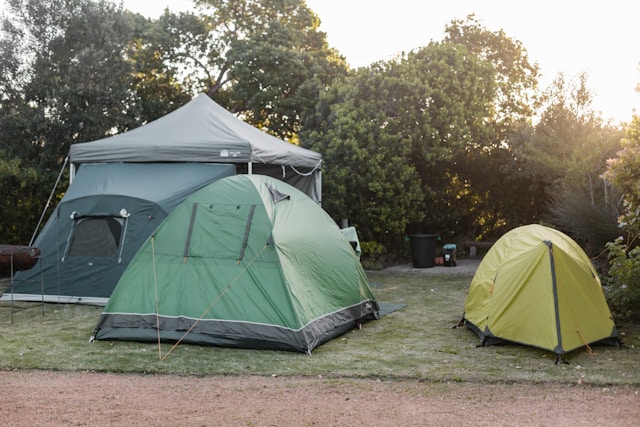If you’re wondering how much a golf cart weighs, what size is right for you, or whether a gas or electric golf cart is best, this 2025 guide has you covered. Golf carts have evolved from simple vehicles used on courses into versatile transportation solutions for neighborhoods, farms, retirement communities, and private properties. Whether you’re looking for a basic two-seater or a lifted, lithium-powered model, this buyer’s guide will help you make the right decision.
This comprehensive guide covers everything, including golf cart types, sizes, weights, costs, battery options, Yamaha and other top models, as well as tips for buying new versus used carts.
What Is a Golf Cart & Who Uses It?
A golf cart is a compact, low-speed vehicle designed primarily to carry golfers and their golf equipment. But modern golf carts now serve a much broader range of users. From families cruising around residential areas to maintenance staff on campuses or resorts, the applications are endless.
Typical users include:
- Homeowners in gated communities and retirement villages
- Resort and park staff
- Large estate owners and farmers
- Golfers and private course members
Types of Golf Carts: Electric, Gas, and Lithium-Powered
When purchasing a golf cart, one of the first questions to consider is whether to opt for an electric or gas model.
Electric golf carts run on rechargeable batteries, are quiet, and emit no exhaust. They’re ideal for short, routine trips. Traditional electric models use lead-acid batteries, which are budget-friendly but require regular maintenance.
Lithium golf carts, a growing trend in 2025, feature lightweight lithium-ion batteries that charge faster, last longer, and require less upkeep. Although they cost more upfront, they’re a great long-term choice.
Gas golf carts use internal combustion engines and are better suited for long distances, hilly terrain, or towing. While louder and less eco-friendly, they offer superior performance in demanding conditions.
Golf Cart Sizes, Seating Options, and Weight
Before purchasing, it’s essential to understand the dimensions and capacity of the golf cart.
Golf cart size and seating options:
- Two-seater: Great for golf courses or solo riders
- Four-seater: Includes a back seat, often fold-down style
- Six-seater: Best for large families or shuttle services
Golf cart weight:
- Average electric golf cart: 800–1,100 pounds
- Average gas golf cart: 1,000–1,500 pounds
Golf cart length and dimensions:
- Length: 92 to 120 inches
- Width: 48 to 54 inches
- Height: Typically around 72 inches
Golf Cart Costs: How Much Does a Golf Cart Cost in 2025?
Golf cart prices vary depending on features, brand, and power type.
New electric carts typically cost less than their gas-powered counterparts, with basic versions starting in the lower price range. Lithium-powered models are the most expensive but require less maintenance.
Used golf carts are a wise choice for budget-conscious buyers. Be sure to check battery life, tire condition, and overall wear before making a purchase.
Customization costs — such as adding seat covers, custom wraps, sound systems, or back seats — can increase total spending. Expect to pay more for street-legal features and lifted carts.
Where to Buy a Golf Cart
You can find golf carts at local dealerships, online retailers, and private sellers.
Local golf cart dealerships offer in-person service, warranties, and test drives. These are ideal for new buyers who want peace of mind.
Online options include retailers such as Lowe’s and Amazon, as well as dedicated platforms like Golf Cart Trader. While convenient, be cautious about shipping costs and warranty limitations.
Private sales on Craigslist or Facebook Marketplace can lead to deals, but always inspect the car thoroughly and request a bill of sale and title if available.
New vs. Used Golf Carts: Which One Should You Buy?
Buying new:
- Comes with a manufacturer’s warranty
- Access to the latest features and styles
- Higher cost but lower risk
Buying used:
- Affordable alternative
- May need battery replacement or light repairs
- Ideal for DIY-savvy buyers or budget-conscious shoppers
Check for:
- Battery age and performance
- Frame and body condition
- Odometer reading or usage hours
- Clutch condition (especially in models like Yamaha G9)
Best Golf Cart Brands: Yamaha, Club Car, EZ-GO & More
Choosing a trusted brand ensures better support and durability.
- Yamaha golf carts are renowned for their reliability and exceptional performance. Models like the Yamaha Drive2 are popular in both gas and electric.
- Club Car features aluminum frames and a sleek design. Excellent for residential and upscale buyers.
- EZ-GO is affordable and straightforward to maintain. Their RXV and TXT models are highly rated.
Emerging brands like Evolution, Icon, and Bintelli also offer street-legal golf carts with stylish designs and factory upgrades.
Financing a Golf Cart in 2025
Do you need to pay upfront? Not necessarily.
Most dealers offer financing, sometimes with promotional rates. If you qualify, you can spread payments over 12 to 60 months. Just make sure to compare interest rates and calculate your monthly costs before signing any agreement.
Golf Cart FAQs
Do golf carts have titles? Not always. Some states require titles for street-legal carts, while others do not for use on private property.
Do you need a license to drive a golf cart? In many areas, yes — especially for road use. Some communities allow unlicensed operation within private or gated areas.
How fast can a golf cart go? Most standard models top out between 15 and 25 miles per hour. Some modified or street-legal carts may be capable of reaching higher speeds.
How long do golf cart batteries last? Lead-acid batteries last around 4–6 years. Lithium batteries can last up to 10 years with proper care.
How much are golf cart batteries? Lead-acid replacements can range from moderate to high, depending on the brand. Lithium batteries are more expensive but offer longer-lasting performance.
Final Golf Cart Buying Checklist
Use this checklist before making a purchase:
- Confirm the golf cart weight and size fit your space
- Test drive if possible
- Inspect battery health and charging time
- Examine tires, brakes, and electrical systems
- Check seat condition, roof, and frame
- Ask about maintenance records and warranty
- Verify if the cart has a title and is street-legal (if needed)
Conclusion
Buying a golf cart is an investment in comfort, convenience, and fun. Whether you’re commuting through Lakewood Ranch, hauling tools on your farm, or just enjoying weekend rides, the right cart can make a big difference.
From gas vs electric to choosing a model like the Yamaha G9 or upgrading to a lithium golf cart, the options are broader than ever. Focus on your lifestyle, ask the right questions, and take your time with the purchase.
In our next post, we’ll cover everything about golf cart driving laws, including where you can legally drive a golf cart, what makes a golf cart street legal, and how to get a golf cart license plate if needed.






